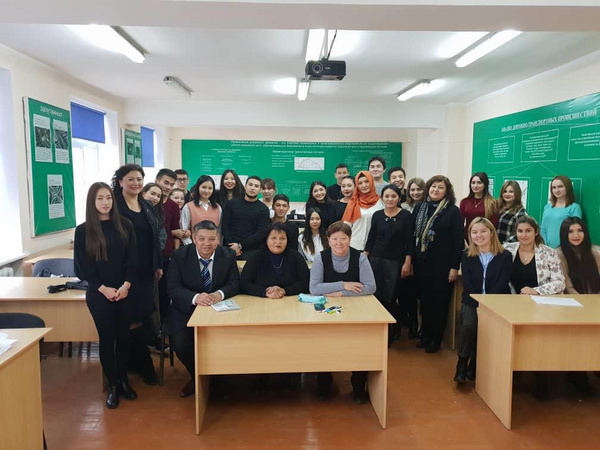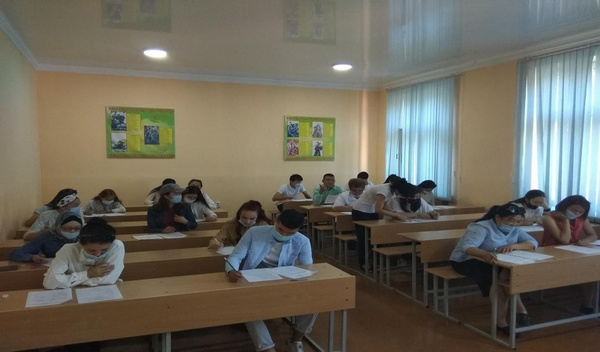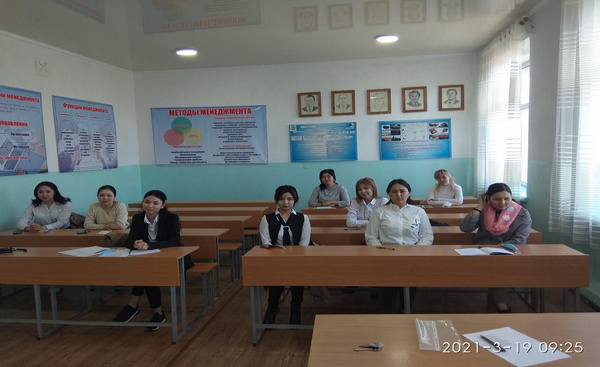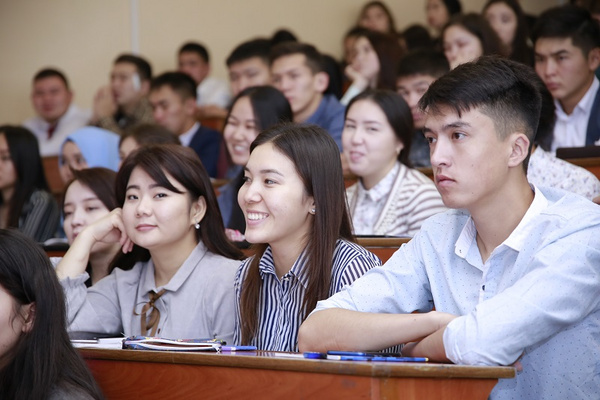Directions and profiles
The Department of Economics and Management is a single structural unit. The main areas of development of the department: improving the quality of educational services, improving the qualifications of teachers, developing international relations.
The Department of Economics and Management trains in the direction of:
bachelors in the profile 580100 "Economics and Management at the Enterprise" (by industry), 580200 "Management"
masters in the program 580100 "Economics and Management at the Enterprise"
Bachelor's degree
580100 "Economics"
profile "Economics and Management at the Enterprise" (by industry)
The main advantage of an economist is the high demand for the profession, and its versatility allows you to find work in almost any field. Having the necessary baggage of knowledge and skills, you can open your own business and not be afraid that it will be unprofitable. Another advantage of the profession is the opportunity to always learn something new and use it in business.
The main area of activity of economists is the implementation of economic analysis of the organization's business activities, the development of measures to ensure an economy mode, improve work efficiency, identify reserves, prevent losses and unproductive costs, and more rational use of all types of resources. The activities of economists also include calculations for material, labor and financial costs necessary for the performance of work or services, research and development in the development of new equipment and technology. An economist must know and be able to:
the procedure for developing financial annual plans and various business plans;
clearly know and comply with the order and time of all financial reporting;
the procedure for developing materials for financial, labor costs;
market methods of running a business, all technologies used in production;
all methods of economic analysis and statistical accounting;
the economist must determine the economic efficiency of new technologies introduced into production;
all rules for the preparation of materials when drawing up contracts;
all methods and techniques for carrying out computational work;
accumulated foreign and domestic experience in the rational organization of the economy in market conditions;
labor legislation standards.
A graduate in the Economics program can work as:
❖ an analyst-economist;
❖ a manager;
❖ a banker;
❖ a financial analyst;
❖ an auditor;
❖ a financier;
❖ a businessman.
❖ a manager of an organization.
580200 "Management"
profile "Financial Management"
A manager is a leader or administrator who holds a permanent position and has the authority to make decisions on specific types of activities of a company, operating in a market environment. Any manager understands how important it is for a company to have a qualified staff, so that each department is headed by an outstanding leader who is able to increase the organization's trading profit. This is possible in two cases: when the manager has chosen his life path correctly, and his personal qualities fully correspond to the profile of the position, and when he knows how to correctly allocate the company's resources.
Managers are, first and foremost, doers and thinkers who, first and foremost, “do the job,” monitoring and managing. If a person is ready to work at an ever-increasing and intense pace, then the manager’s profession is made for him.
The manager’s profession consists of ensuring the most effective management of an organization. The objects of activity of this profession are economic, production and social spheres. In general, it is needed in any organization where a high-quality level of management is required. A manager must be able to:
manage;
organize;
save;
plan;
conduct marketing, information and analytical and project research work, etc.
Graduates of the Management program can work in the following areas:
❖ Finance and banking;
❖ Top management in any sector of the economy;
❖ Head of department (supervisor);
❖ Head of department or functional services;
❖ Lending manager;
❖ Business development manager;
❖ Financial manager;
❖ Business consulting.
Qualification: Bachelor
Form of study: full-time - 4 years, part-time - 5 years
Language of instruction: Russian
Tuition fee for 1 year: full-time - 33,600, part-time - 26,880.
The department's activities are aimed at further improving the educational process and introducing modern forms and methods of teaching students into the educational process, using active and interactive teaching methods. In their work, the department’s teachers use multimedia equipment and modern teaching methods – practical situations, business games, case studies.
Master's degree
580100 "Economics"
Program "Economics and Management at the Enterprise"
Professional activity tasks of a graduate Master's degree
A graduate who has completed the educational program of the Master's degree, in accordance with the type (types) of professional activity, which this educational program is focused on, is ready to solve the following professional tasks:
Analytical activity: A Master's degree student is able to prepare analytical materials for assessing events in the field of economic policy and making strategic decisions at the micro and macro levels; and is also able to analyze and use various sources of information to conduct economic calculations; is able to make a forecast of the main socio-economic indicators of the enterprise, industry, region and the economy as a whole
Organizational and managerial activity: communication in the state and foreign languages to solve problems of professional activity; management of professional activity based on the historical and cultural heritage of the state; development of short-term, long-term policies and strategies for the development of enterprises, institutions, organizations of various organizational and legal forms and their individual divisions; management of economic
research activities: identification and study of current problems in the field of economic theory, economics, international economics, finance, accounting and auditing, marketing; organization and conduct of scientific research, collection, processing, analysis and systematization of information, selection of methods and means for solving research problems; development of theoretical and econometric models of the studied processes, phenomena and objects related to the sphere of professional activity, assessment and interpretation of the obtained results;
pedagogical activity: use of the basics of pedagogy in educational activities; teaching economic disciplines in educational organizations of higher professional education, additional professional education, professional educational organizations, organizations of secondary general education; development of educational programs and teaching materials.
The goal of the educational program 580100 "Economics" (Master's) in the field of training is:
— training in the field of the fundamentals of advanced professional education, allowing the graduate to successfully work in the chosen field of activity, the formation of general cultural (universal), social and personal, general scientific, instrumental and professional competencies that contribute to his social mobility and stability in the labor market.
In the field of personality education, the goal is:
— development of personal qualities in master's students that contribute to their creative activity, general cultural growth and social mobility: determination, organization, hard work, responsibility, independence, citizenship, commitment to ethnic values, tolerance, persistence in achieving the goal.
Qualification: Master's
Form of study: full-time - 2 years
Language of instruction: Russian
Tuition fee for 1 year: - 40,500 s.








